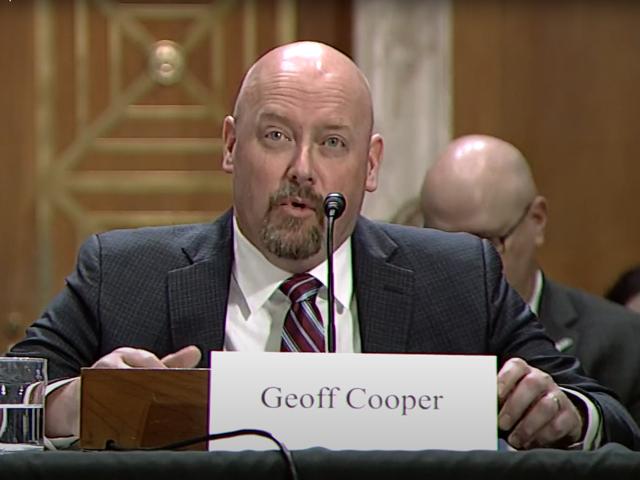Is Setting National LCFS Feasible?
RFA's Cooper Tells Senate Committee Ethanol Has Concerns About eRINs Proposal
LINCOLN, Neb. (DTN) -- Though a national low-carbon fuel standard (LCFS) arguably is the wave of the energy future in the U.S., diverging opinions about the viability of such a policy paints a complex picture going forward.
A group of experts testified Wednesday before members of the Senate Environment and Public Works committee.
As the EPA continues to finalize a multi-year Renewable Fuel Standard rule that includes the creation of electricity renewable identification numbers, or eRINs, the liquid renewable fuel industry's wish list includes setting a national low-carbon fuel standard.
The RFS recently has become a battle ground for electric vehicles and liquid biofuels. Two senators on the committee including Pete Ricketts, R-Neb., and Cynthia Lummis, R-Wyo., said caution should be taken on moving to electric vehicles too quickly.
"I'm concerned that a national program could prioritize electric vehicles over liquid fuel vehicles, biofuels, and make us more dependent on our foreign adversaries that control a majority of the worldwide production of several key components," Ricketts said during the hearing.
"For example, the CCP, Chinese Communist Party, controls 60% of the raw lithium mines in the world, 50% of lithium processing and refining and 75% of lithium-ion battery mega factories. How can you ensure that a new national low-carbon fuel standard will not falsely prop up EVs and do significant damage to liquid fuels for biofuels and process?"
Geoff Cooper, president and CEO of the Renewable Fuels Association, said while the ethanol industry supports a national LCFS there are concerns about the EPA's latest multi-year Renewable Fuel Standard and its approach to eRINs.
"We're not opposed to the inclusion of electricity in the RFS," Cooper told the committee.
"But it's got to be done right and we share your concern that in the case of these eRINS the generator of those credits would be the automaker like Tesla. That's completely different, completely inconsistent with how RIN credit generation is done across any other fuel that is regulated under the RFS and so that gives us some concern."
P[L1] D[0x0] M[300x250] OOP[F] ADUNIT[] T[]
In the EPA's current proposal, automakers would be allowed to benefit from what is called booking-claim accounting. An automaker could sign a contract with a renewable electricity producer that lives thousands of miles away.
"When that electron enters the grid, the automaker gets to claim that carbon reduction benefit from that electron whether it ever is used to fuel an electric vehicle or not," Cooper said.
NATIONAL LCFS CONCERN
Lummis said she has concerns that creating a national low-carbon fuel standard would "only galvanize efforts" to enact another "anti-consumer regulatory scheme, such as phasing out liquid fuels through electrification mandates or banning heavy duty diesel engines."
Chris Spear, president and CEO of the American Trucking Associations, said the industry he represents has been opposed to and has fought in court LCFS efforts in California and Oregon because of how the policies affect medium-sized trucking companies.
Net-zero policies in both states, he told the committee, have marginalized trucking businesses with 20 trucks or fewer.
"Those are folks that are paying retail at the pump, they don't have fuel contracts," Spear said.
"So, the impact that this has on inflating the cost of diesel in those states and in those areas is quite measurable. It's the second-largest cost drain under labor. And so, this is a make-or-break issue in terms of keeping them out on the road moving freight; those costs generally will be reflected in what consumers pay -- your constituents."
A move toward decarbonizing the transportation sector, he said, "needs to be a gradual process." Because of LCFS policies, Spear said trucking companies are paying $7 or more for diesel in California. California, for example, has set a net-zero goal on cutting carbon emissions by 2045.
"There's not a debate about if we get to zero but when we will get there," Spear said.
"Not just on the timelines proposed by California. They're excluding our industry and a mad dash to zero makes their timelines and targets not only unachievable but guarantees they will fail. To get to zero. We have to be honest, and we have to be transparent about the road ahead."
ETHANOL CARBON COMPETITIVE
Cooper told the committee the ethanol industry is poised to compete with electric vehicles on a carbon basis but emphasized the need for federal and state policy to put all fuels on the same playing field.
"We certainly believe that an LCFS or clean-fuel standard done right at the national level, would complement a Renewable Fuel Standard," he said.
"We fully support a full lifecycle approach when analyzing the carbon intensity of all fuel pathways. When we talk about electric vehicles, we often hear them referred to as zero-emissions vehicles. Well, that's ignoring all of the upstream emissions associated with electricity production. But for corn ethanol specifically the Department of Energy analyzes in great detail that full lifecycle energy use and emissions involved with farming and harvesting the corn and processing that corn into ethanol. When you add all that together, corn ethanol has an emissions footprint that is about 50% lower than gasoline.
"Again, if the lifecycle analysis is done correctly, and the carbon-intensity scores are developed in a fair and transparent way, we believe that renewable fuels are going to compete very well with electric vehicles in terms of carbon reductions that they provide.
Todd Neeley can be reached at todd.neeley@dtn.com
Follow him on Twitter @DTNeeley
(c) Copyright 2023 DTN, LLC. All rights reserved.



